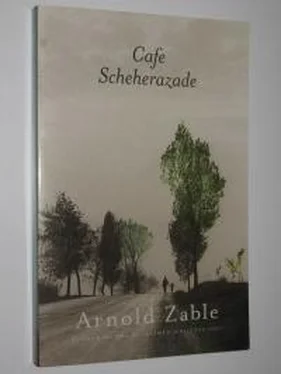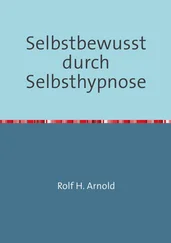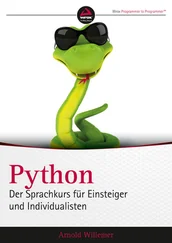Arnold Zable - Cafe Scheherazade
Здесь есть возможность читать онлайн «Arnold Zable - Cafe Scheherazade» весь текст электронной книги совершенно бесплатно (целиком полную версию без сокращений). В некоторых случаях можно слушать аудио, скачать через торрент в формате fb2 и присутствует краткое содержание. Город: Melbourne, Год выпуска: 2001, Издательство: Text Publishing Company, Жанр: Проза, на английском языке. Описание произведения, (предисловие) а так же отзывы посетителей доступны на портале библиотеки ЛибКат.
- Название:Cafe Scheherazade
- Автор:
- Издательство:Text Publishing Company
- Жанр:
- Год:2001
- Город:Melbourne
- ISBN:нет данных
- Рейтинг книги:4 / 5. Голосов: 1
-
Избранное:Добавить в избранное
- Отзывы:
-
Ваша оценка:
- 80
- 1
- 2
- 3
- 4
- 5
Cafe Scheherazade: краткое содержание, описание и аннотация
Предлагаем к чтению аннотацию, описание, краткое содержание или предисловие (зависит от того, что написал сам автор книги «Cafe Scheherazade»). Если вы не нашли необходимую информацию о книге — напишите в комментариях, мы постараемся отыскать её.
Cafe Scheherazade — читать онлайн бесплатно полную книгу (весь текст) целиком
Ниже представлен текст книги, разбитый по страницам. Система сохранения места последней прочитанной страницы, позволяет с удобством читать онлайн бесплатно книгу «Cafe Scheherazade», без необходимости каждый раз заново искать на чём Вы остановились. Поставьте закладку, и сможете в любой момент перейти на страницу, на которой закончили чтение.
Интервал:
Закладка:
The route back to the old world was cut off. Ships could no longer make the journey from Vladivostok to Tsuruga. The American option had dried up as relations with Japan soured. Curaçao was beyond reach. The Japanese were being pressured by their German allies to deal more harshly with refugees. In frantic negotiations behind the scenes, between Jewish community leaders and Japanese authorities, one last option was agreed upon.
On 17 September 1941, after an interlude of seven months, Zalman and his companions descended from their hillside homes to the harbour, suitcases clutched in their hands. It was an autumn day.
Kobe glistened in auburns and golds. The city seemed distant and calm. Again they were strangers, detached from the mainstream, captive to a journey beyond their control.
112
The refugees boarded the passenger ship, the Taiyo Marg. Towards evening they stood on the decks gazing at their former haven on the heights. They watched until the widening gap extinguished the last receding lights; and as he recalls that moment, Zalman pauses, and lapses into stillness, as if reliving his sense of resignation, and the helplessness he had felt as the Taiyo Maru made its way into the darkness towards the South China Sea.
Even as we sit and drink and argue and talk at the tables of
Scheherazade, even as I continue to listen to their tales, they are moving on, the old men. One by one they are going. Every few weeks I hear of another death. I have been drawn into their collective fate. I follow them to the cemetery that sprawls at the southern fringe of the city, an hour's drive from the cafe.
I have farewelled them in all seasons now: on spring days, following the funeral bier along paths sprouting weeds and errant flowers. On days of summer heat, over paths hardened and parched.
On winter mornings under skies sagging with clouds, the mud sucking at the shoes, the gravesides sodden with clay. And on autumn afternoons, the sun low on the northern horizon, the paths gilded with plant decay.
The cemetery stands on a flat plain. To the north rise the hills of the Dandenong Ranges. On clear days they appear like cardboard cut-outs, lit up in startling focus against expansive 113 skies. On such days I glimpse the final irony in the old men's journeys, the final twist in the tale.
They had come from the old world to the new to remake their shattered lives. Yet it can be sensed, by their gravesides, that this too is an ageing land; worn low by geological time into wooded hills and basalt plains, its features suffused with its own peculiar light which illumines the rabbi intoning the funeral rites.
His voice dissipates in the wind. Eulogies evaporate mid-air. One by one old friends step up to shovel the freshly dug earth over the pine casket. Those that step back converse quietly in this moment of suspended time.
As the mourners depart, two attendants complete the task of covering the grave. Within minutes all that remains is a mound of earth topped by a wooden stave. The crowd has dispersed. A generation is moving on. And with each passing life I feel it more keenly: there are tales aching to be told, craving to be heard, before they too disappear into the grave.
So I return to the cafe, to the remaining storytellers, to listen and record. To inscribe and pass on. And, in so doing, to add to the mythology of an ancient land.
When I ask him to recall the years he spent in Shanghai, Zalman is somewhat vague. "Shanghai? What stands out? What impressions come to mind? The confusion. Where Kobe was symmetry, Shanghai was chaos. Where Kobe was an idyllic interlude, Shanghai was a rat's maze, a dead-end.
114
"Martin, if I were a painter trying to depict Shanghai in the war years, I would plunge my brush into all the colours of the palette and splash them on thick, at random. Or if I were a musician I would take all the instruments from all over the world, put them together and say, `Hey! Blow! Scream! Bang! Play as loud as you can! All of you!`
"What more can I say? In Shanghai I had a persistent feeling of wanting to run away. I felt as if I was stuck in a swamp.
Shanghai was the lowest ebb, and within its chaos I had to surrender, to let go of all hope. Yet, in Shanghai, strangely enough, I rediscovered the moments of solitude I had learnt to recognise on my daily walks through the streets of Kobe."
Again the wrinkling brow as Zalman speaks; again that look of awe tinged with irony as he contemplates a journey which continues to flow through him, and still surprises him with its capacity to flood his mind.
After a journey of thirty-six hours the Taiyo Maru entered the mouth of the Whangpoo River. Zalman noted the stillness of the water, its coffee-like texture, the bat-winged sailing junks littering the port. He saw families crowded upon the junks, their drying clothes hanging from makeshift lines. He saw barges bulging with coal, piloted by river-men whose faces were black with dust and sun-beaten toil. Freighters and liners edged to and from a drift of warehouses and docks. Single-oared sampans darted in and out like audacious dwarfs. 115
In the foreground he could hear the lapping of the water, a sound which seemed all the more alluring in the midst of so much noise.
And there was the heat. He had never experienced anything like it before, a damp heat that dripped with fatigue and blunted the senses.
The Taiyo Maru rounded a sharp bend and came upon a riverside boulevard alight with trolley cars and rickshaws hauled by
Chinese labourers on the trot. Coolies ran with loads bouncing from shoulder poles. The sun bounced off their lithe bodies, which were saturated in sweat. British and French overlords walked by, perspiring in formal attire. European-style buildings, opulent banks and houses of trade, adorned with domes and cupolas, arched windows and bas-relief pillars, towered over the thoroughfare.
As Zalman gazed upon this inferno of commerce, the Taiyo Maru anchored offshore. The Kobe refugees descended into motor launches and were transferred to the waterfront. It was the same at every border, that feeling of insignificance, of being at the mercy of uniformed officers bloated by their status and the power they wielded.
Even members of the Jewish refugee relief committees, on hand to greet them, seemed irritable. They directed the newcomers into open-sided trucks that lurched into the traffic of Shanghai. The convoy carried them past a sweep of consulates, onto the Garden
Bridge over Suzhou Creek. A fleet of junks moved by, laden with timber and coal. Beyond the polluted waters they glimpsed the alleys that were to become 116 so familiar in the ensuing four years.
The trucks slowed to a halt in the district of Hongkew. Just four years earlier, it had been the site of bloody battles fought between Japanese armies and the defending Chinese. The invaders rampaged through Hongkew in a fury. Up to a quarter of a million
Chinese fell in the assault. As they retreated, they torched buildings that were about to fall into enemy hands.
The new Hongkew rose from the ruins, an insanity of makeshift houses interspersed with vacant lots covered in charred ruins and rubbish dumps. There were dwellings that seemed to remain frozen in a bloodstained past; doors hung from their hinges; breezes whistled through gaping holes. In the typhoon season, mud and water gutted the streets. In the summer months, the smell of food and refuse rose like poisonous vapour from the hardened earth.
Perhaps one hundred thousand Chinese lived in this dilapidated area, alongside an escalating population of refugees. In the late
1930s seventeen thousand Jews, denied entry to the rest of the world, had streamed into Shanghai. They had fled from Germany, Austria, Czechoslovakia, from Vienna, Prague and Berlin, from towns and cities scattered throughout Nazi-occupied Europe.
Читать дальшеИнтервал:
Закладка:
Похожие книги на «Cafe Scheherazade»
Представляем Вашему вниманию похожие книги на «Cafe Scheherazade» списком для выбора. Мы отобрали схожую по названию и смыслу литературу в надежде предоставить читателям больше вариантов отыскать новые, интересные, ещё непрочитанные произведения.
Обсуждение, отзывы о книге «Cafe Scheherazade» и просто собственные мнения читателей. Оставьте ваши комментарии, напишите, что Вы думаете о произведении, его смысле или главных героях. Укажите что конкретно понравилось, а что нет, и почему Вы так считаете.












